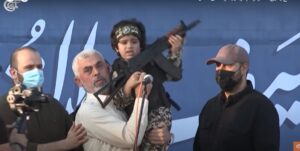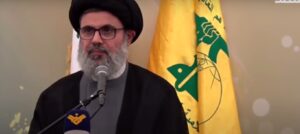Senior political figures in Jerusalem disclosed that, during behind-the-scenes talks mediated by Qatar and Egypt, Israel suggested deporting six senior members of Hamas’ military wing to a foreign country.
Among the proposed deportees were Yahya Sinwar, the Gaza Strip leader, his brother Mohammed, in charge of the tunnel project and security system, Mohammed Def, the commander-in-chief, and his deputy, Marwan Issa.
Reasons for Rejection:
- Strategic Importance of Abductees: Sinwar and Def consider the 136 Israeli abductees in their custody as a crucial bargaining chip.
This leverage strengthens their position in the political-military game with Israel, allowing them to rebuild the military wing and resist any new rule in Gaza.
- Ideological Implications: Exile contradicts Hamas’ ideology as a Jihad movement. Sinwar compares himself to Salah a-Din Alayoubi, emphasizing the historical significance of recent attacks as victories against Israel.
The proposal is viewed as a humiliation and a threat to their image as jihad fighters.
- Fear of Assassination: Sinwar and Def see the deportation offer as a potential Israeli ploy to expose them to assassination abroad.
Citing the example of Saleh al-Arouri’s assassination in Beirut, they fear Mossad’s long reach, even in locations like Tehran.
The theoretical proposal has hardened Hamas’ stance, leading them to assert their capability to defeat IDF forces in Gaza and setting challenging conditions for any future deal involving the release of abductees.
While some security officials argue that deportation does not contradict national goals, others suggest that countries like Qatar, Turkey, or Lebanon could be potential hosts.
However, this proposal is deemed unnecessary, offering an undeserved reward for terrorism.
The idea of deporting Hamas leaders draws parallels with the historical deportation of Yasser Arafat and the PLO leadership in 1982. However, the return of Arafat in 1993, leading to subsequent conflicts, serves as a cautionary tale against allowing the survival of key figures responsible for past violence.
Conclusion:
The discussion surrounding the deportation proposal reflects the complexities of the Israeli-Hamas conflict.
While some advocate for this measure, others argue for the physical elimination of the military elite, emphasizing surrender or death as the only options. The refusal by Sinwar and Def underscores the deep-rooted ideological and strategic considerations at play in the ongoing struggle between the two entities.



